How one woman beat her mental illness by helping others
- Published
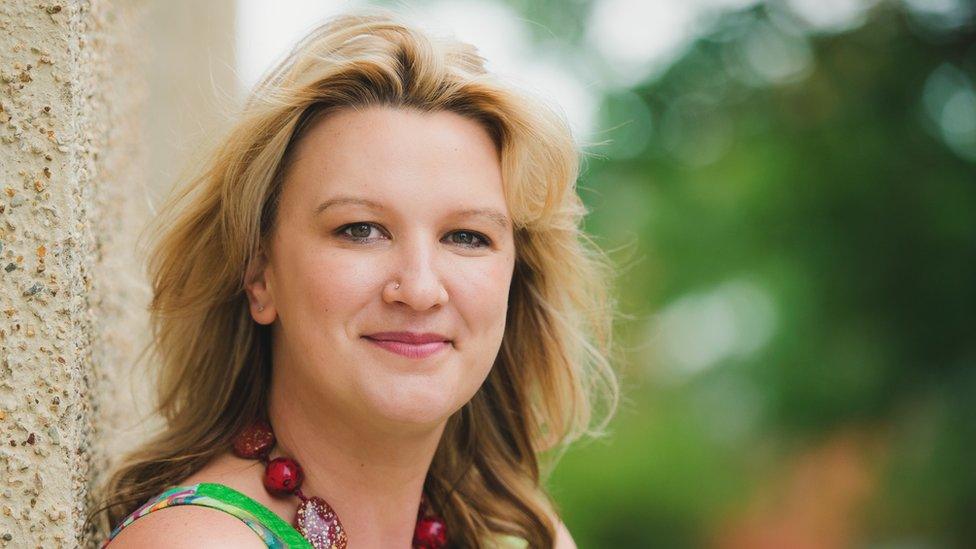
Jessica's own troubles inspired her to set up a business to help others in a similar situation
Jessica May was moving quickly up the career ladder until she was tripped up by mental illness.
Following the birth of her first child, Jessica developed a problem with her thyroid gland that greatly exacerbated her pre-existing anxiety disorder.
"I've had anxiety my whole life," says the 36-year-old from Canberra, Australia. "The [thyroid] condition meant that my anxiety got out of control."
This was back in 2012, and Jessica decided to return to her civil service job sooner than originally planned, after she and her doctor agreed that getting back to doing the work she loved would keep her focused and hopefully mitigate her anxiety.
But Jessica, who had to reveal her mental health problem to her employers to receive the flexible schedule she needed, claims that her managers and colleagues started to make negative assumptions about her capabilities, and began to exclude her from projects.
"Because of how I was treated... I didn't really get better," she says.
Having previously managed 17 staff, Jessica says she felt disheartened and devalued.
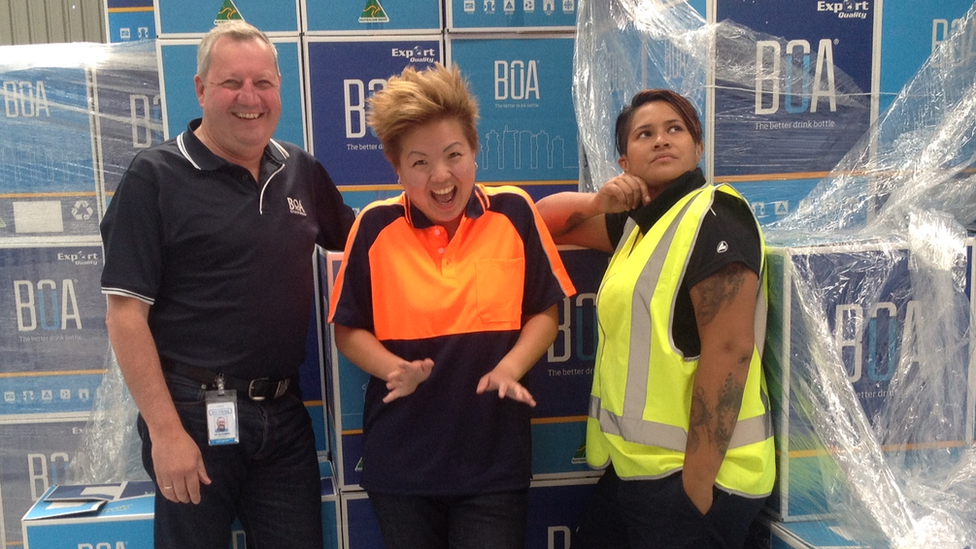
Enabled helps people with disabilities find employment
However, the bad experience did ultimately have a positive impact - it made Jessica determined to help other people with mental or physical disabilities, and gave her the idea for setting up a business to do this.
"I knew there needed to be something for people with disabilities who just need a little bit of flexibility from their employers," she says.
So she decided to quit her government job and launch Enabled Employment, a recruitment consultancy that helps people with a disability find paid work.
Today, the Canberra-based company helps thousands of people find work at more than 400 businesses in Australia, including accountancy giant PricewaterhouseCoopers, taxi hire service Uber, and even the Australian Defence Force.
To help get Enabled up and running, Jessica successfully applied for a small entrepreneurship grant from the Australian Capital Territory government.
She left her civil service job one Friday in December 2012, and started work at Enabled the following Monday, with help and support coming from a local start-up support initiative called the Griffin Accelerator. The number of people and companies using the business then slowly started to grow.
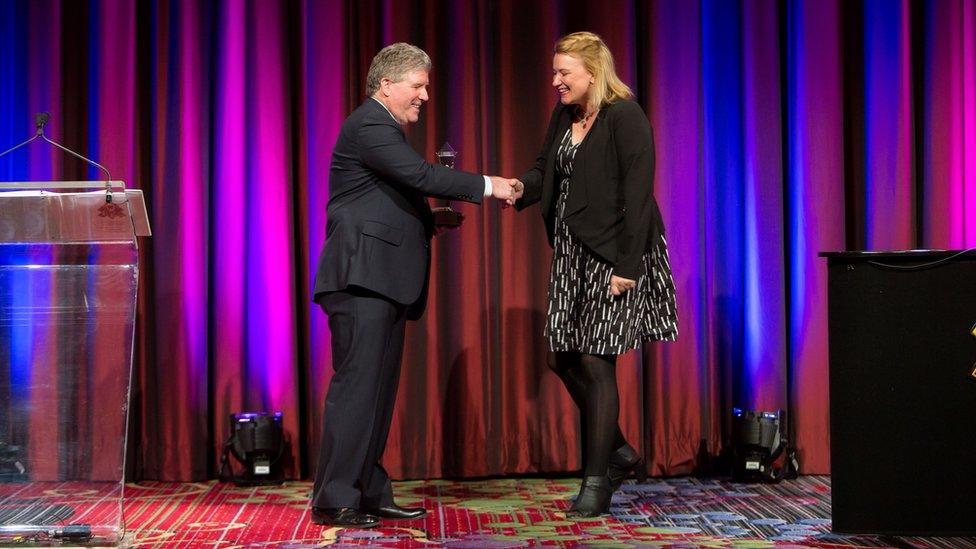
Jessica May has won numerous business awards
The business is similar to a regular recruitment agency, in that it maintains an online listing of available jobs, and acts as a mediator between would-be employees and hiring managers.
However, Enabled also offers what it calls "accessibility brokering", which means that it works to ensure that businesses are able to offer employees the working conditions they need to perform at their best. This includes checking on flexible working hours and ensuring that offices have disabled access and toilets.
Jessica is keen to stress that the company is not a charity. Instead it is a for-profit business.
She believes that charities that pay businesses to take on disabled staff can reinforce negative stereotypes about disabled people.
"It really devalues people with disabilities who are totally capable," she says. "We don't want anyone to feel like a charity case."
Instead, Enabled charges companies, typically a one-off fee equivalent to 10% of a person's annual salary. By contrast, people who use Enabled to find work don't have to pay it anything.
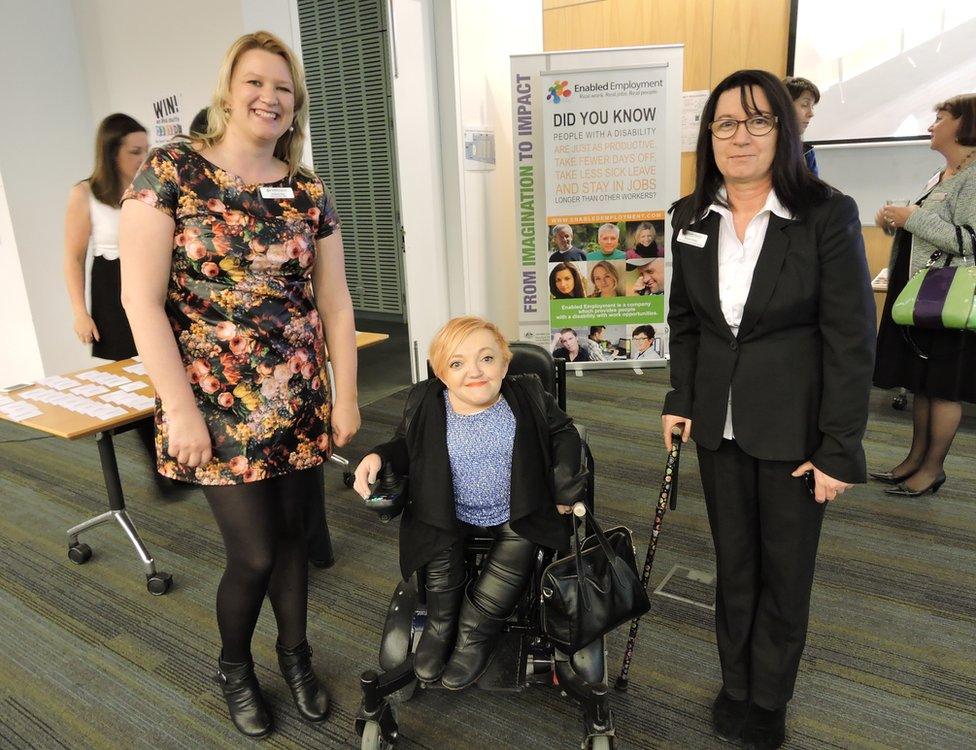
The late Australian comedian Stella Young (centre) was an Enabled Employment ambassador
"There's 4.2 million people in Australia with a disability. Many of these people are very competent, it is really about trying to break down their barriers to work," says Jessica.
"We charge businesses for our services because you should be paying for amazingly qualified people, and you should also be paying for the diversity that it brings."
Enabled is valued at more than six million Australian dollars ($4.6m; £3.9m), and has expanded its services to include military veterans and indigenous Australians.
Suzanne Colbert, the founder of the Australian Network on Disability, says that Enabled has "freshened up" the Australian job market's otherwise "stale" attitude towards hiring people with disabilities.
She adds that Enabled has allowed employers to "tap into new sources of talent".
When it comes to its own staff, Enabled practises what it preaches. Four of its seven full-time employees have a disability and work within a schedule that accommodates them best.
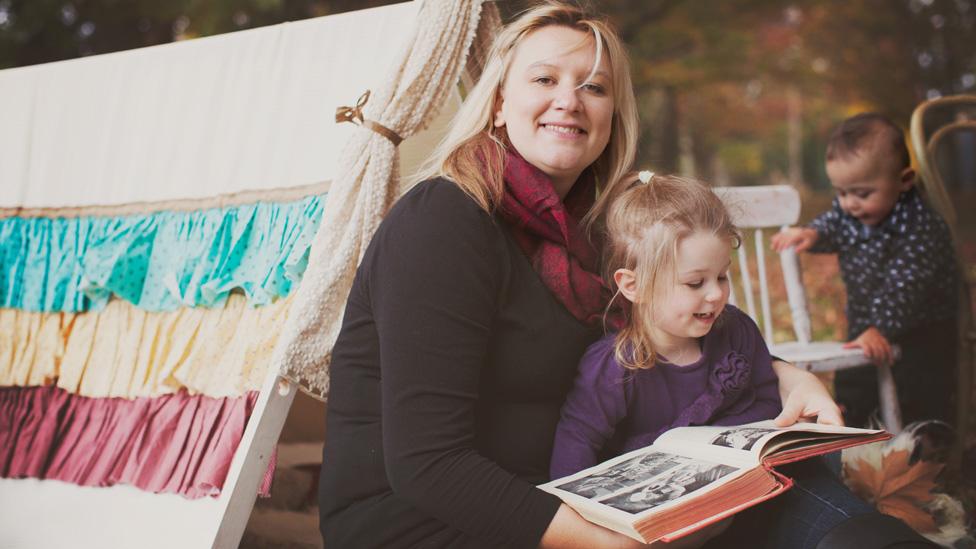
Jessica balances her work with looking after her two young children
The company and Jessica have also won a number of Australian awards, including start-up of the year in 2015, and a National Disability Award for community accessibility.
Looking ahead, Jessica says she plans to expand the business in Australia before considering any moves overseas.
But for now, she says she is "the happiest she's ever been".
"I still have anxiety. It doesn't ever go away, but I can definitely manage it with the flexibility that we have at Enabled."